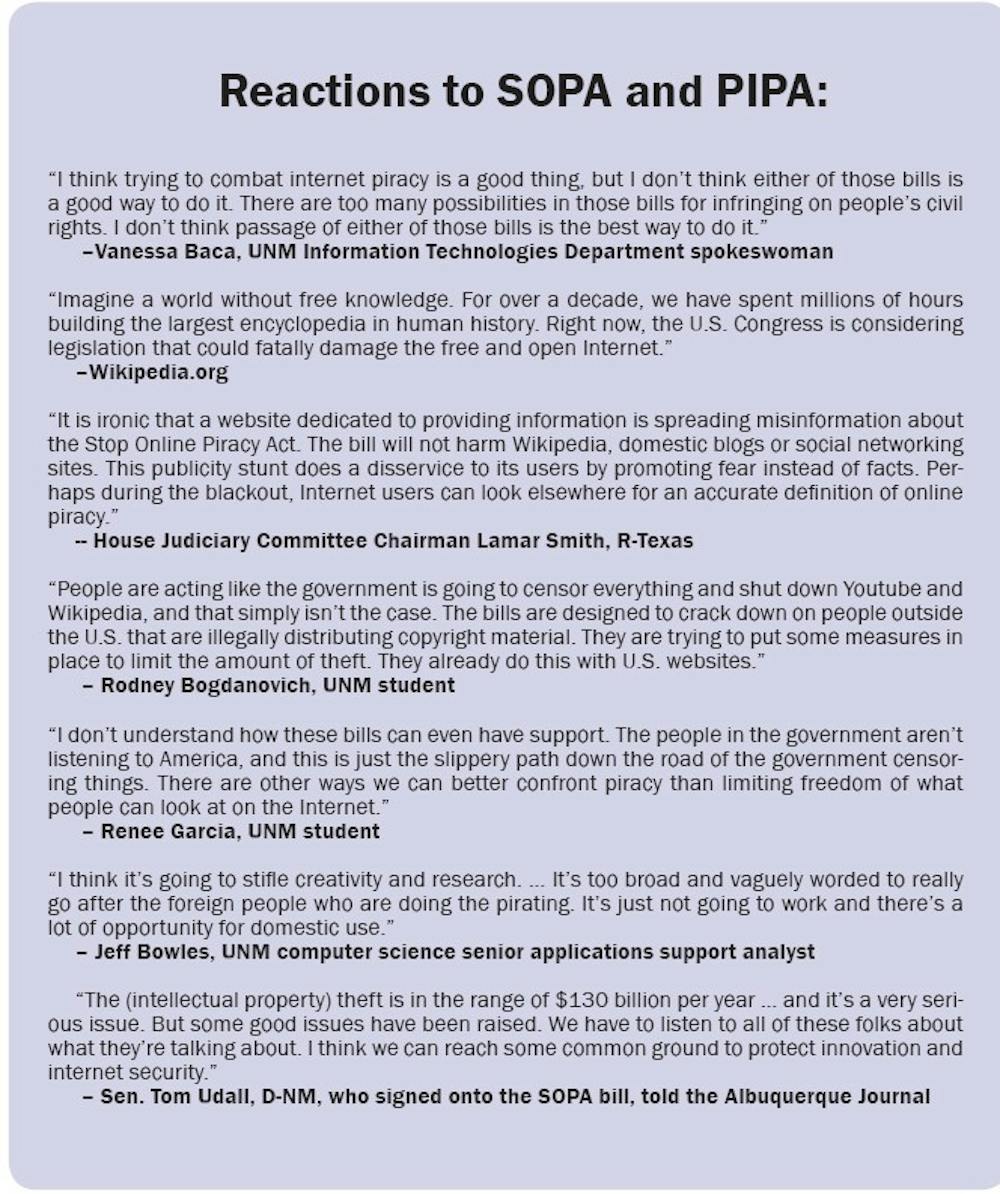Many people found it difficult to access websites such as Wikipedia and Reddit on Wednesday after more than 500 websites “blacked out” in protest of SOPA and PIPA. The Stop Online Piracy Act (SOPA) and the Protect Internet Privacy Act (PIPA) are bills designed to prevent Internet piracy of copyrighted materials. The Senate votes on PIPA on Jan. 24. While the intention of the bills is to stop online piracy and copyright infringement by foreign-based websites, critics argue the bills will infringe on free speech.
Current law permits the prosecution and shutdown of U.S.-based websites that feature pirated content, but the federal government has no jurisdiction over foreign sites. According to the text of the bills, SOPA, introduced in the House of Representatives, and PIPA, introduced in the Senate, would allow the Justice Department to block access to foreign websites that offer pirated content.
Additionally, the bills would allow companies to take legal action against sites that host pirated content, and would require credit card companies to stop payments to websites hosting illegal content.
While the bills share similar language, SOPA includes a clause which would make it illegal to stream unauthorized content.
“Unauthorized content” could include covers of popular music posted on sites such as Youtube, some crtitics say.
For the bills to pass, the House Judiciary Committee must finish its review of SOPA, and both SOPA and PIPA must come to the floor for a vote. The final language of both bills must match.
Opponents of the bills, including Wikipedia, said the legislation will limit the freedom of information by requiring internet providers to block websites hosting digital file sharing. But congressional staff memos from those supporting the legislation said the “black out” websites won’t even be affected by the bill.
According to these memos, “Websites ‘going dark’ today in protest of the PROTECT IP Act will not be affected by enactment of the legislation. None of the following websites meet the definition of a site dedicated to infringing activities: Wikipedia; YouTube; Flickr; Twitter; Google; craigslist; eBay; The Huffington Post; Yahoo!.”
The debate centers partly on concerns about the language of the legislation, which defines piracy and copyright infringement as, “activities constituting specified intellectual property offenses under the federal criminal code including criminal copyright infringement, unauthorized fixation and trafficking of sound recordings or videos of live musical performances, the recording of exhibited motion pictures, or trafficking in counterfeit labels, goods, or services.”
Get content from The Daily Lobo delivered to your inbox






